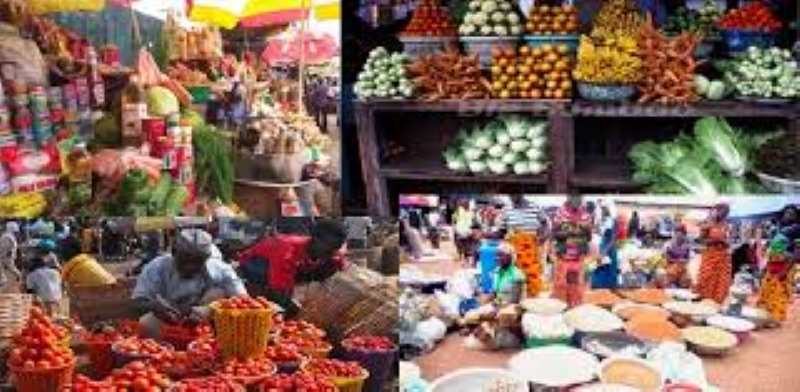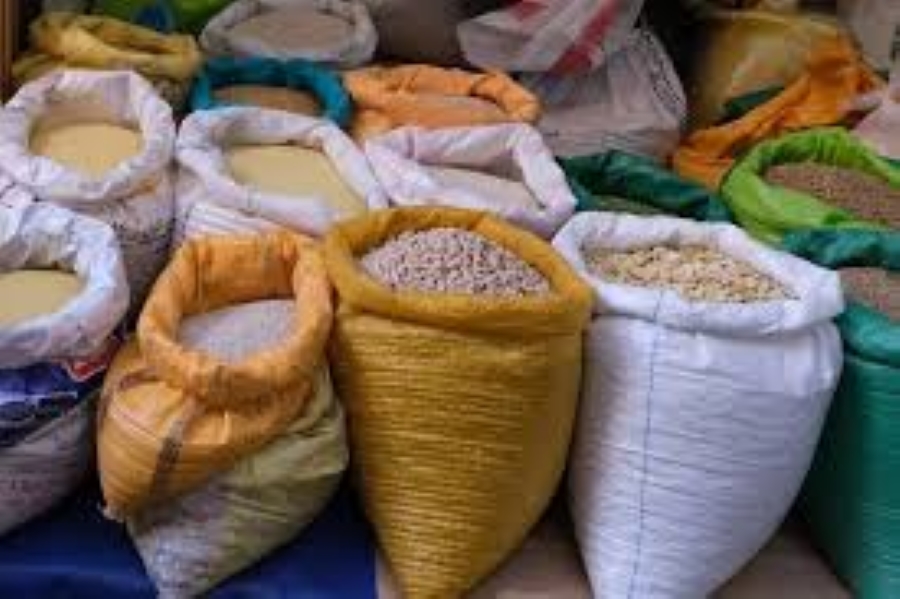Top advocacy groups in the private sector of the economy, have advised the government and relevant stakeholders on how to address the challenge of high food prices being experienced in the country. In separate statements made available to FarmingFarmersFarms, the Manufacturers Association of Nigeria (MAN), the Lagos Chamber of Commerce of Industry (LCCI), and financial expert, have made this known while reacting to the outcome of the decision by the Central Bank of Nigeria (CBN) to raise the Monetary Policy Rate (MPR) by 50 basis points, bringing it from 26.25% to 26.75%, following the 296th Monetary Policy Committee (MPC) meeting.
Recall that the CBN governor, Olayemi Cardoso had said the “recent measures by the fiscal authority is to address food inflation. In its consideration, the committee noted the persistence of food inflation, which continues to undermine price stability. It was observed that while monetary policy has been moderating aggregate demand, rising food and energy costs continue to exert upward pressure on price development”. The governor added that the prevailing insecurity in food producing areas and high cost of transportation of farm produce were also contributing to this trend.
The CBN governor disclosed that the MPC also had in consideration, the increasing activities of middlemen, who often finance smallholder farmers, aggregate, hoard, and move farm produce across the border to neighbouring countries. He said that the committee suggested the need to put in check such activities to address the food supply deficit in the Nigerian market to moderate food prices. Cardoso advised that it was expedient that the policy should be implemented with a defined exit strategy to avert a possible rollback of the recent gains in domestic food production.

The position of MAN
MAN is the voice of manufacturers that promotes sector competitiveness, job creation, and Gross Domestic Product (GDP), through commitment to research development of new technologies and environmental sustainability in Nigeria. According to the association’s Director-General, Segun Ajayi-Kadir, despite the continuous increase in MPR over the past two years resulting in a weighty 1,475 basis point hike from 11.5% in May 2022 to 26.25% in May 2024, inflation had remained persistently high, reaching a staggering 34.19% in June, the highest since March 1996, saying the new rate would further constrain the growth of the manufacturing sector, as the purchasing power of consumers, production levels, competitiveness and sales would face further decline. MAN then called on the government to urgently address the issue of low manufacturing productivity and food production occasioned by the high-level of insecurity across the country, to curb the persistent rise in inflation.
LCCI reacts
On its part, the LCCI has acknowledged the CBN’s efforts at controlling inflation and stabilising the economy. The Director-General of LCCI, Dr. Chinyere Almona, called on the government and the CBN to consider a more balanced approach to monetary policy. While controlling inflation is crucial, mitigating adverse effects on business operations and economic growth is equally imperative. The chamber made a case for policies that directly address supply-side constraints, such as improving agricultural productivity and stabilising energy prices, which can help reduce inflationary pressures more effectively. “The LCCI remains committed to working with the government and the CBN to ensure policies that foster a conducive environment for business growth and economic stability. A holistic approach, balancing inflation control with support for businesses, will pave the way for sustainable economic development in Nigeria”, the Director-General stated further.
CPPE counsels
Meanwhile, the Chief Executive Officer, Centre for the Promotion of Private Enterprise (CPPE), Dr. Muda Yusuf, has described the 50 basis points increase as tolerable, calling for an urgent implementation of fiscal policies to stabilise the economy. The CPPE boss said the moderate increase showed that the CBN was listening and responding to suggestions of financial stakeholders to stop aggressive tightening measures. He explained that, although he preferred a pause on rate increases because of the challenges businesses were facing, there is the need for speedy implementation of fiscal policy measures to tackle inflation.

